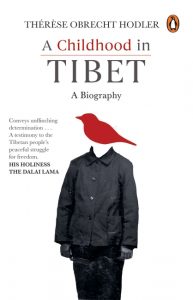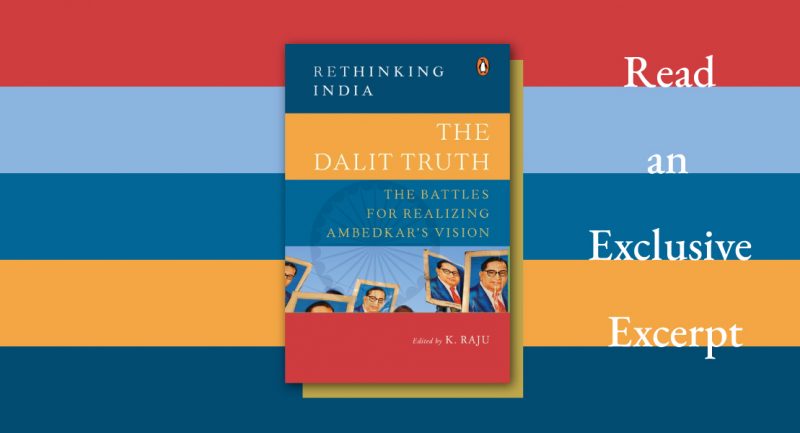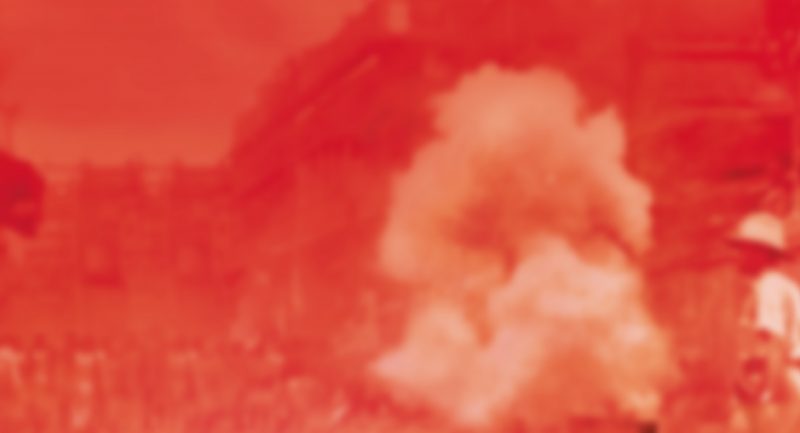
Tendöl Namling turned 60 in March 2019. She was born at the time when the Dalai Lama fled from Lhasa and the uprising of his people by the Chinese People’s Army was brutally suppressed. She has lived for 22 years under Chinese rule. As the daughter of a high government official, she underwent the ordeal of ‘re-education’ with full force. All she has kept from these years are painful memories and some crumpled photographs. Thanks to the efforts of her family in exile, Tendöl was able to leave Tibet in 1982. After twenty years of hardship, she landed in prosperous Switzerland. It felt as if she had to start her life all over again.
Here’s an excerpt from A Childhood in Tibet that depicts the oppressive ways of the Chinese regime and how it wreaked havoc in common people’s lives.
*
Tendöl takes her mother’s arrest warrant out of an envelope and bursts into tears. Fifty years later, the traumatic event stirs her up as if it had happened the previous day. ‘My brother Tenor was already in prison then. My mother and I were back from the camp in the east, and the road was finished. We lived in my aunt’s house in Lhasa. It was already dark that December evening when my amala came home. There was a red note on the door. She had no idea why. A little later she looked out of the window and saw a car turning into our narrow alley. She wondered what that might mean. I was sitting on the balcony listening to a Tibetan propaganda broadcast on Chinese radio. We had to listen to such broadcasts every day. Older people often found this so unbearable that they usually put blankets over the radios.‘Suddenly I saw many flashlights illuminating our front door. Chinese military police had come to pick up my mother. One of them read the warrant in a loud voice. It said that my mother was an “active counter-revolutionary” guilty of sabotage. They handcuffed her and searched the entire apartment. But the Chinese had already looted it before. All objects of any value had long since disappeared. My aunt and her daughter, Lochoe, who lived in the lower apartment, were locked up in the kitchen. I begged my amala: “Take me with you! Don’t leave me behind!” Children are not allowed to accompany their arrested parents, shouted a Chinese. I cried, squeezed my way under the barrier to my mother and pulled the chain she was tethered to. My mother called out to me: “Please stop. The prongs are cutting into my skin.” The Chinese policemen, accompanied by a Tibetan collaborator, pushed me aside. They locked the apartment, took my amala with them and drove away.’The next day, Tendöl and her cousin Lochoe went in search of her mother. They took some tea, boiled vegetables and a blanket with them. The girls knew more or less where the prisons were, even if they weren’t marked. First, they went to Drapchi prison and asked the guards at the entrance if new prisoners had been admitted but there was no trace of Tendöl’s mother. The girls continued their search but could not find her. 
On their way home, they passed Gutsa prison. There the guards confirmed that Choekyi had indeed been admitted the day before. They asked the guards to at least give the prisoner the food and blanket they had brought with them.A few days later, Tendöl happened to see her mother being dragged into an office in Lhasa by uniformed officials. She had no way of following her or finding out what had happened to her. It took her several months to be able to visit her amala in prison for the first time. But she was not allowed to talk to her because her mother had not yet been convicted. Once a month, relatives were allowed to take food to the prisoners. Her aunt gave Tendöl a bowl of barley soup for her mother. The little girl was so hungry that she drank some soup on her way to the prison. But on that day she was refused entry. She should come back in a month, they told her. Disappointed and sad, Tendöl made her way home and was afraid that her aunt would notice that she had furtively eaten a few spoons of soup because she was so hungry.
*
In Tendöl’s words, ‘this little book is dedicated to all the Tibetans who continue to rebel against the Chinese occupation’.









